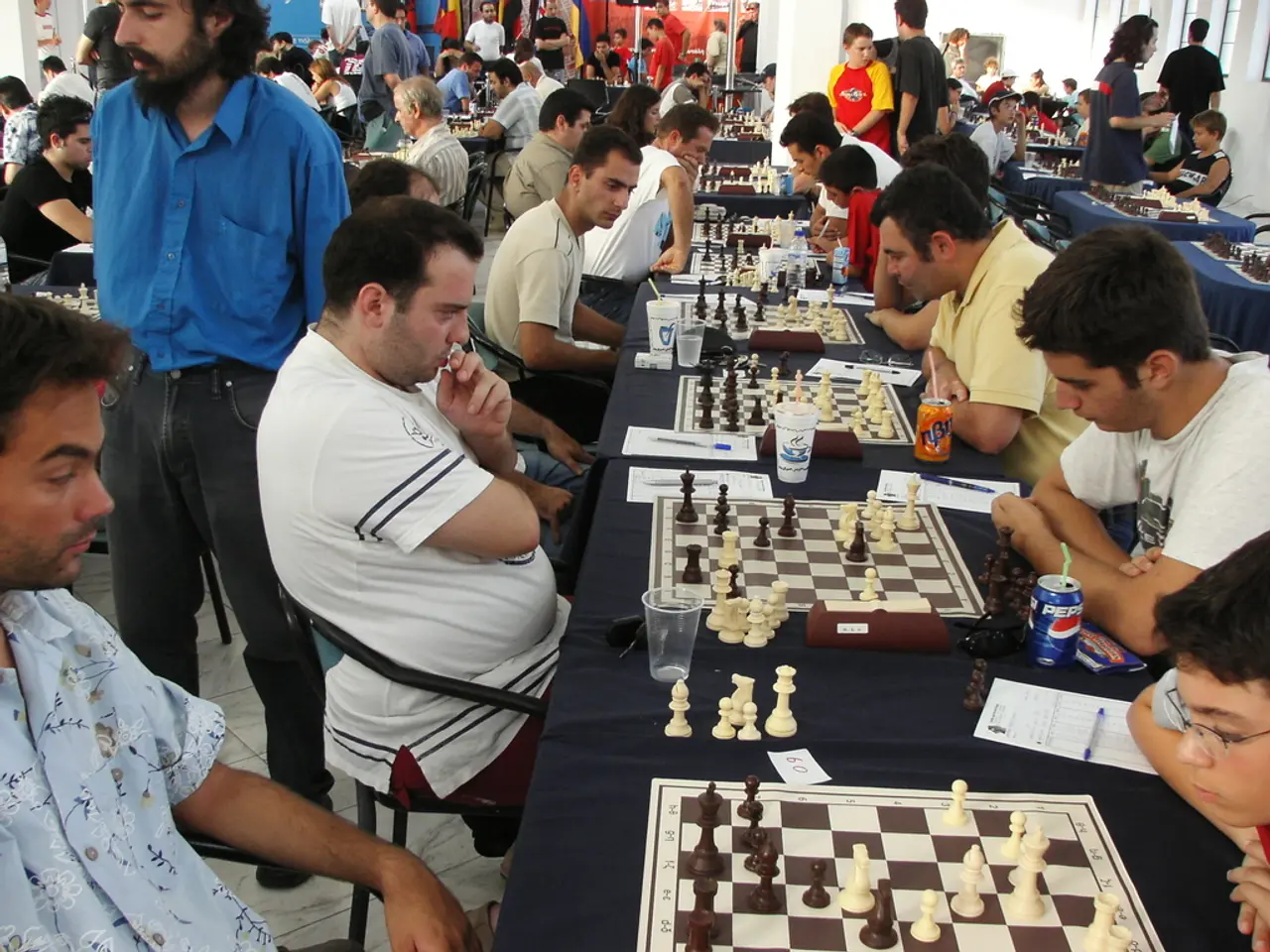"R. Paul Wilson Discusses: Quick-Paced Casino Game, Tonk"
================================================================================
In the world of gambling card games, Tonk (or "Tunk") stands out as a fast-moving and engaging game that has found popularity in certain circles, particularly within the North American penal system.
At its core, Tonk involves players reducing their hand's point total through melding cards or "dropping" by declaring a low point total. Key strategies include forming melds (three or four of a kind or sequences), using wild cards (jokers and 2s), and tactically deciding when to knock or drop to end the round.
Core Strategies and Variations in Tonk:
- Melding: Create three or four of a kind or sequences of the same suit.
- Wild cards: Use jokers and 2s to substitute cards in melds.
- Drawing: Choose wisely between drawing from the stockpile or discard pile to improve your hand.
- Dropping: You can call “drop” at any time if you believe you have the lowest points; everyone reveals hands, and the lowest wins the round.
- Tonk Knock: Ending the round immediately by playing all your cards or having 50 points exactly in hand before play starts.
- Point Scoring: Face cards count as 10, aces as 1, and other cards their face value. Players with 100+ points are eliminated.
Variations:
Tonk's variations typically involve different house rules on dropping, meld formation, scoring, or use of wild cards. Some variants allow adding cards to melds already on the table, while others may have unique scoring and elimination thresholds. Games can be played with different numbers of players, sometimes with team play.
Mathematical Advantage:
Unlike betting games with fixed odds, Tonk’s outcomes are influenced by player decisions, the random draw of cards, and the strategic timing of knocking or extending melds. While skill and strategic play clearly increase winning chances, there is no formalized mathematical advantage system comparable to card counting. Success stems mostly from experience, probability assessment, and psychological play.
Lew Brooks and Tonk:
Lew Brooks, a dealer in Las Vegas and a member of the local magic community, recognized Tonk as susceptible to a mathematical strategy and analyzed the game extensively. Despite working on a book about his Tonk strategy, it was never published. Brooks had a wealth of knowledge about various games and the gaming industry, and a razor-sharp intellect.
In Tonk, players can "hit" other players' spreads with their own cards, and in some variations, "hitting" another player's spread can result in that player having to sit out for a round or multiple rounds. If a player's initial hand totals 50 points in Tonk, they can immediately "drop" and claim double stake from the other players. A "Tonk" or "Tonking Out" in Tonk costs opponents a multiple of their initial stake. If someone else also has 50 points in Tonk, the players either share the pot or the second player can claim it instead. If a player Tonks out but their spread allows another player to also Tonk out, both players (or just the second player to Tonk) can win a "double-double" in Tonk.
Despite no well-documented mathematical advantage beyond good strategic hand management and reading opponents, Tonk remains an engaging and popular game among those who appreciate its strategic depth and fast-paced gameplay.
In the realm of card games, casino-and-gambling enthusiasts might find interest in Tonk, a game that can be played with blog posts detailing its strategies and variations. Within these discourses, there's a mention of poker-like elements, as in Tonk, players can "hit" each other's spreads, and a player with 50 points can "drop" to claim double stake, resembling the all-in move in poker. This connection illustrates how Tonk, a lesser-known game, shares similarities with more popular casino-games like poker.





